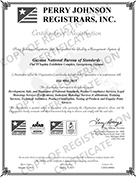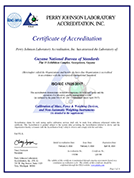The Guyana National Bureau of Standards (GNBS) which functions as the Codex Contact Point has been facilitating the development of standards relating to food and agriculture to enhance the products, services, and systems of these sectors. A key international partner in this effort is the Codex Alimentarius Commission (CAC). The CAC was established in 1962 to implement the Joint Food and Agriculture Organisation (FAO)/ World Health Organisation (WHO) Food Standards Programme.
Implementation of Codex standards is voluntary, and the translation of these standards into national legislation or regulation is required for their enforcement. Implementation and enforcement of these standards ensure the fair trade of safe foods. Codex standards offer science-based recommendations in all areas related to food safety and quality; they are referenced in the World Trade Organisation (WTO) trade negotiations.
Guyana became a member to CAC in 1970 and subsequently, the GNBS was identified as the National Codex Contact Point (NCCP). The NCCP acts as the Secretariat for the CAC; meaning that it coordinates ‘ALL’ Codex activities within Guyana, and it is the major communication link between the CAC and Guyana.
To expedite the work of Codex, a National Codex Committee (NCC) was established. This Committee’s mandate is to facilitate national discussions on food safety issues affecting local producers and consumers to contribute to the discussions during the development of Codex standards. The NCC has a formalised structure and its members include a representative from the Ministry of Public Health, Ministry of Agriculture, Inter-American Institute for Corporation on Agriculture, Guyana Consumer Association, Faculty of Natural Sciences, and the Guyana Manufacturers Services Association. The NCC meets regularly to discuss food safety-related issues and make recommendations to eliminate them using the Codex standards.
In July of this year, during its meeting, the NCC addressed a range of food safety-related issues made nominations for the participation in various Codex meetings. These meetings include the 43rd Session of the Codex Alimentarius Commission first virtual meeting began on September 24-26 and continues October 12 & 19 in which the Commission is to decide on food standards development work items executed by the different Codex Committees.
In addition, the Virtual Codex Alimentarius Colloquium on Task Force for the Antimicrobial Resistance meeting took place on September 16, 2020. Discussions were centred on the Draft Revision of the Code of Practice to contain and minimize Antimicrobial resistance (Code of Practice) and the Draft of Guidelines for integrated monitoring and surveillance of food borne AMR (GLIS).
Meanwhile, there is a meeting slated for October 15- with the Codex Committee of Latin America and the Caribbean (CCLAC) Coordinator and the Codex Trust Fund to discuss the experiences of Code Trust Fund awardees in the CCLAC Region.
Under the Codex Trust Fund, three activities are to be executed. Firstly, the training of regulators, food business operators and other food safety stakeholders on Codex standards and the distribution of print and non-print materials. Secondly, a technical workshop will be held to identify areas of Codex standard development for special products produced in Guyana and manufactured for export; and lastly the development of a communication strategy to increase awareness among stakeholders.
In closing, food producers are encouraged to download free copies of Codex standards from the Codex website http://www.fao.org/fao-who-codexalimentarius/home/en/. The GNBS will continue to utilize the Codex standards in the development of national food standards to ensure that internationally recognised requirements and best practices are used by our local industry.
For further information, contact the GNBS on telephone numbers: 219-0062, 219-0065 or 219-0069 or follow us on Facebook: @gnbsgy.






